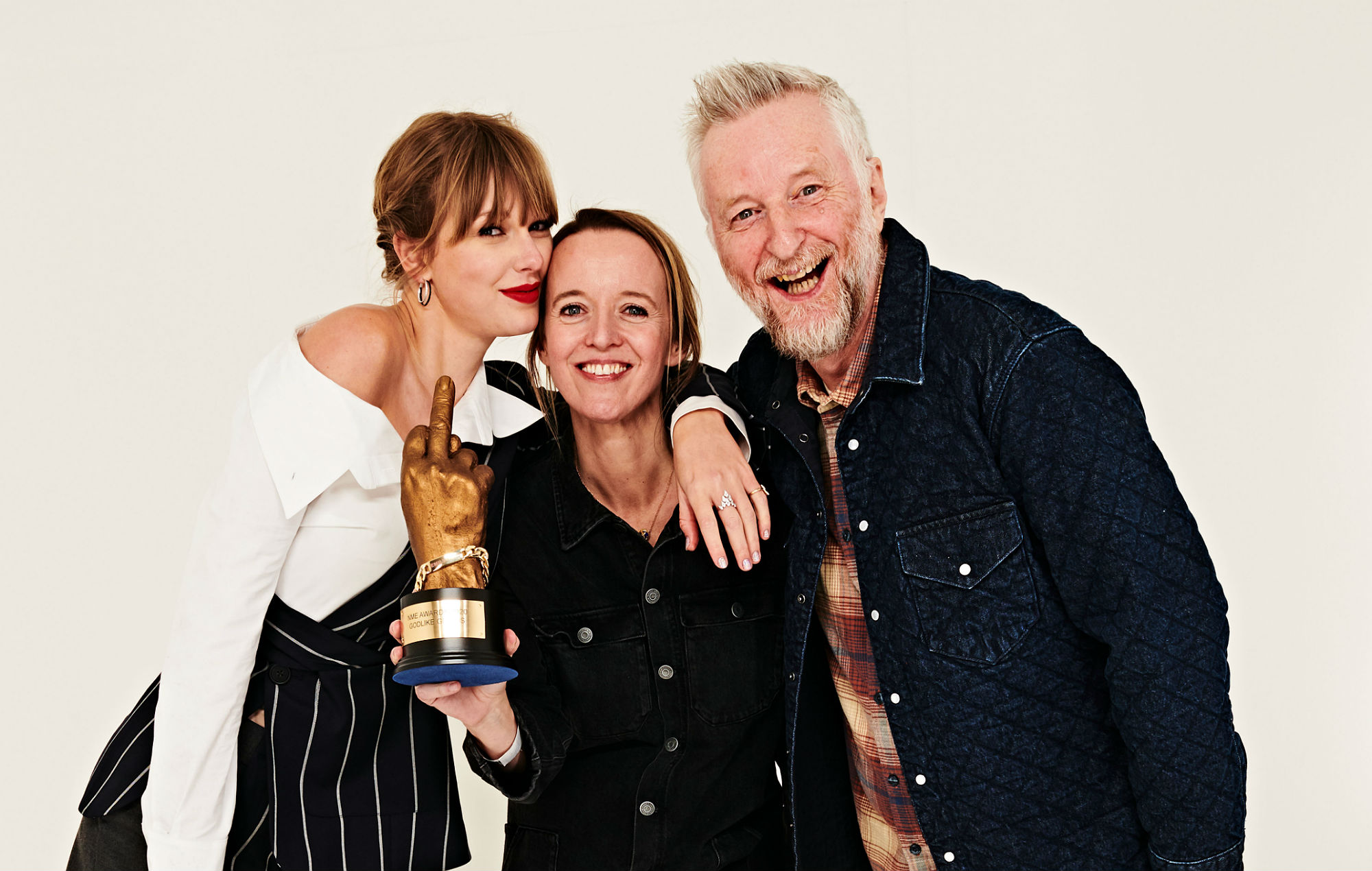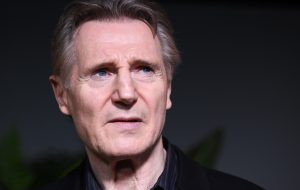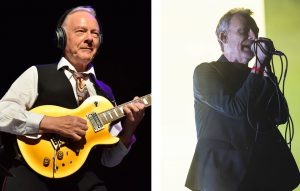Billy Bragg has spoken to NME about what to expect from the activism, political discussion and live music from the Left Field at Glastonbury 2024 – hoping to “put forward a vision of a better world” ahead of the General Election.
READ MORE: Glastonbury 2024: check out the full line-up, performance times and stage splits
The Left Field area is organised and co-founded by the punk-folk icon Bragg and Juliet Wills, and was first designed in the year 2000 to promote left-wing politics and political action; a place for Glasto-goers to “recharge your activism”.
This year’s line-up will see performances from the likes of English Teacher, Bob Vylan, Sprints, Billy Nomates, Trampolene, Lottery Winners and Pillow Queens, as well as talks and debates around subjects including trans liberation, the Israel and Palestine conflict, the post office scandal, immigration and the housing crisis.
“There’s a general election coming [on July 4], and that’s why we’re looking at these issues,” Bragg told NME. “Housing, immigration, accountability – we’re looking at trans rights as well. Lee Anderson said that the Tories don’t have any policies left and they’d fight the election on trans issues and culture wars.
“When we sat down to focus on what we needed to talk about this year, it helped us that the election was coming and to sprinkle the panels with Labour MPs who might actually be in government next year; people like Angela Rayner.”
Check out our full chat with Bragg below, as he tells about keeping politics alive in new music, keeping debate alive in new music, and why you’ll never see a Tory in the Left Field.
NME: Hello Billy. The last time we spoke was when you covered Taylor Swift for us to honour her Glastonbury headline set that never happened…
Billy Bragg: “Yes, it never came to be. We had a brief encounter at the NME Awards 2020 just a few weeks before shit went down with the COVID pandemic, and then none of it came to pass. The first thing I remember about the whole thing was going to Boots by Brixton station and buying some hand sanitiser on the way to that gig! I had to be careful about what I brought home, other than snapshots of me and Taylor Swift!”
Have you stayed in touch?
“Sadly, she hasn’t been in touch since. It’s a shame she didn’t come and do Glastonbury. That would have been a trip!”
Have you found that the spirit of Glasto has changed much in the years since?
“There was a general hunger for people getting together and listening to music. It’s something you get at a gig that you can’t get online – it’s a form of communion. With Glastonbury, it’s a series of huge collective experiences depending on where you’re standing at any given moment. We’re there to celebrate the common good.”
It must feel more important to celebrate the common good and talk about real issues rather than culture wars and dog whistles?
“That’s the complaint that people have had about the Tories, and it was proven in the council elections. People are voting much more on bread and butter issues rather than on whether or not National Trust scones have butter or margarine in them. People are much more interested in the key issues like healthcare, the NHS, long-term care, mental health, housing.”
You’ve been very vocal about trans issues, including coming to blows with J.K. Rowling. Do you feel that tends to be more about people shouting from behind battle lines rather than much of a debate?
“There isn’t a huge amount of nuance in the debates around freedom of speech or fundamental human rights. It’s so divisive and unfortunately the frontline of this is social media. If you want to get involved then you need to get your chin helmet on and get in there.
“I’d rather not be on there, but that’s where the arguments are. When you’ve got the war in Gaza as well as it being an election year, then you have to be in there to fight your corner.”
Billy Bragg at the NME Awards 2020. Credit: Dean Chalkley
Do you believe that good will out?
“You know, when I was 10-years-old, it was illegal to be homosexual in the UK. When I was 19 at Rock Against Racism, you’d get your head kicked in if people thought you were gay. In the ’80s, Section 28 made it illegal to talk about gays and lesbians in school. Somehow, that changed. Now I don’t know how that changed, but it didn’t change just by people ignoring it and expecting it to happen.
“There were people out there all the time, pushing the issue for gays and lesbians to have the same rights as everyone else. I feel absolutely confident – and it’s not just because they’re using the exact same issues against the trans and non-binary community – but I do feel that we will get to the same place of acceptance.
“It might take a few years, it might take a generation, but all of us by standing up and being counted are making a difference. That community have asked for cis people to stand up and be an ally. That’s what I’m trying to do – stand in solidarity.”
You could argue that normalising the discussion is the best way to bring about nuance?
“Exactly. All of these topics are in great need of nuance, and social media isn’t a good place for that.
Have you ever been at a talk in Left Field and had your mind changed?
“Yes, there are some issues that you just don’t encounter every day. Some of the early debates that we had around trans and non-binary issues were eye-opening. Just to bring people in and hear their experiences has helped on that level. We’re trying to put forward a vision of a better world. People who came in and talked about handicap issues led to us getting better wheelchair access at Left Field. We hadn’t thought about having that wheelchair platform before that. Things do happen as a consequence of the way that we put forward our gigs and debates.”
Billy Bragg. CREDIT: Robun Little/Getty Images
How open are these debates? Do all sides of the spectrum join in?
“People say to me, ‘Why don’t you invite Tories to come and do a talk?’ It’s because I don’t want the audience to turn on them. You can’t invite someone to Glastonbury and then have the audience go for them, I don’t think that’s fair. We’re talking about panels in which we talk about a vision for a better world. It’s less of an open debate and more like a rally of bringing people together to fire them up.
“It’s the same reason I don’t bring a Tory singer-songwriter on stage to answer back to my songs; that’s not what we’re trying to do. We’re trying to recharge people’s activism and give them a perspective they might not have had before.”
Are there very many Tory musicians?
“Well, they keep it quiet in my experience!”
And you’re still trying to change minds with your music too?
“I’ll sing a song like ‘All You Fascists’ or ‘There’s Power In A Union’ and I’ll change the lyrics to be about sexuality. There are a lot of guys who are my age and have been around since Rock Against Racism but not get their heads around the transition of the idea. I’m hoping that I might be able give them a nudge to go away and have a think about it, rather than thinking, ‘Oh, that’s too dangerous – I don’t want J.K. Rowling biting my arse.”
Why do you think that musicians and creatives tend to be more left-leaning?
“When you’re young with your life in front of you, you live in a world of possibilities. They fundamentally believe that the war in Gaza should end with a two-state solution and have got no other means by which to express that and put themselves on the line than by protesting at colleges and universities across the US and Europe. That’s not a brand new thing. Music has always been one of the few mediums we had for talking about these things.
“There’s no real alternative now. In the old days, I did my apprenticeship for music while on the dole. The taxpayer paid for me to learn how to be a singer-songwriter. I like to think I’ve paid their investment back through taxes. People need room to create. They need opportunities and venues to showcase their talent. We don’t have as many of them as they should.”
The acts performing at Left Field this year – what do they have in common?
“It’s wrong to think of Left Field as somewhere where we’re just looking for political artists. There aren’t loads of artists with songs about the union because they didn’t go through the miners’ strike when they were 20-years-old like my generation did. It’s a different world. What we’re looking for is artists who are talking about the pressure that they feel under – from society, from the economy, from the previous generation – and giving them a platform.
“Sometimes that can be body issues, knife crime, you name it. Pillow Queens are talking about abortion. It’s for those people who have something to say beyond, ‘I’m great, you’re shit, do you like my socks?’ We’re happy to have bands like English Teacher identify with us when they’ve got so many other stages to choose from.
“I must also mention that the line-up has been brought together by Juliet Wills, who co-curates it with me. That’s all her work.”
Could we see a Glasto collab with Big Special or Bob Vylan?
“I’d love for that to happen. Billy Nomates is more likely because last time she played she was telling me how much she liked ‘New England’, so that could be interesting.
“We have a space for bands to camp and hang out which means that English Teacher can talk to Angela Rayner or the other politicians. We’re trying to encourage the cross-pollination between artists and activists. Some of the younger bands play other festivals and then they’re told to fuck off. We want them to pitch a tent and stay for the weekend.
Are you expecting a rockstar welcome for Angela Rayner?
“I think so, especially after the pressure she’s been under. The Daily Mail’s front page, after the Tories absolutely got absolutely their arses kicked in the local elections, was about Angela Rayner again. It’s total sexist bullying. It’s not just her – Dianne Abbott is the most abused MP across all parties. I think Angela Rayner will get a huge response when she comes to the Left Field. We’ve got Andy Burnham, who’s been doing amazing work with Manchester and with the Hillsborough justice campaign. We try to get politicians who are festival-friendly and put on a good show.”
Is he a future Prime Minister?
“I’d vote for him.”
What else have you planned for Glastonbury? Your usual order of crumble and doughnuts?
“I tell you what’s heartbreaking – The Crumble Shack ain’t gonna be there this year. I’m going to have to go back to taking drugs. It’s probably just as well. I could see that thing from the stage. I’d be trying to put something together about the situation around fishing quotas after leaving the EU and just be thinking, ‘I’ll go for rhubarb crumble with a special crusty topping’.
“Beyond that, I just enjoy the vibe. There are a bunch of people who work with us that I only ever see at Left Field. We come together to do something special. It’s the spirit of Left Field that I enjoy the most. That and the vegan stall just across the road.”
The gates to Glastonbury 2024 open tomorrow, with the Worthy Farm festival taking place between June 26-30. Dua Lipa, Coldplay and SZA are due to headline the Pyramid Stage, with other performances coming from the likes of Shania Twain, LCD Soundsystem, Little Simz, The National, Avril Lavigne, The Last Dinner Party, Jungle, Justice, Bloc Party, Fontaines D.C., Yard Act, Arlo Parks and Gossip.
Check back at NME here for the latest news, reviews, interviews, photos and more from Glastonbury 2024.
The post Billy Bragg talks activism at Glastonbury 2024: “We’re trying to put forward a vision of a better world” appeared first on NME.




